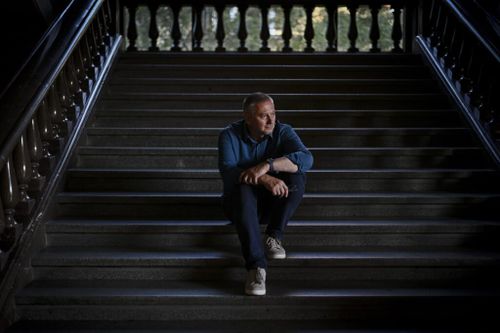Georgi Gospodinov: the Weaponization of Nostalgia

How is nostalgia used as a political weapon? The acclaimed Bulgarian writer Georgi Gospodinov (Time Shelter, The Physics of Sorrow) explores the relationship between collective memory and identity in contemporary Europe.
Populist politicians are merchants of nostalgia. But what happens when the desire to preserve the past overtakes the will to shape the future? Georgi Gospodinov explores how collective memory is shaped, used, and misused. Having lived through a communist dictatorship, Gospodinov warns for grand stories and favors the small, the personal and the particular.
With a reading from Time Shelter by Gijs Scholten van Aschat (in Dutch with surtitles).
About Time Shelter
In his acclaimed novel Time Shelter – awarded the International Booker Prize – Gospodinov tells the story of a ‘clinic of the past’ offering Alzheimer’s patients spaces recreating different decades of the twentieth century. Soon the clinic attracts healthy people seeking refuge from an uncertain present. What begins as a therapeutic project quickly becomes a political tool, raising urgent questions about how nostalgia can be manipulated to rewrite history and influence the future.
About Georgi Gospodinov
Georgi Gospodinov (1968) is a Bulgarian writer, poet, and playwright. His debut, Natural Novel (1999), was an international success, followed by The Physics of Sorrow (2011) and Time Shelter (2020), which won the 2023 International Booker Prize. His work has been translated into more than 35 languages and is known for its unique blend of history, philosophy, and sharp social observation on Europe’s past and present anxieties. Gospodinov’s writing frequently explores themes of memory, nostalgia, and the way history repeats itself.
About Forum on European Culture
Who’s afraid of art? Now that tyrants are on the roll and more and more people in the West seem to be falling for the autocratic alternative, Forum on European Culture 2025 (June 25 – June 29) brings together international artists, writers, and thinkers to celebrate the subversive power of art and literature.